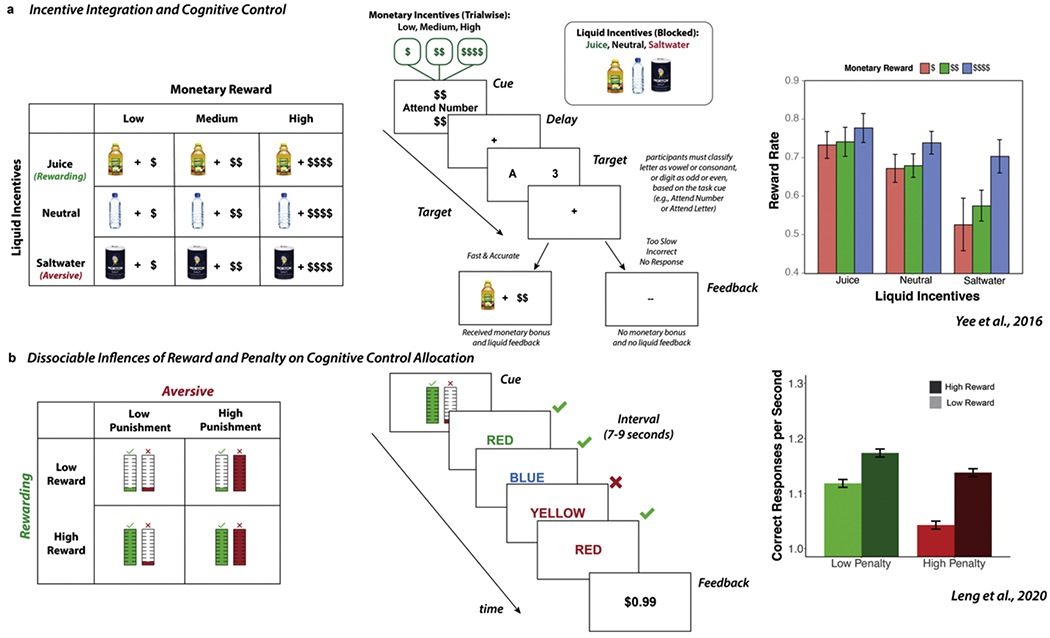Fig. 4.

Experimental Paradigms for Investigating Aversive Motivation and Cognitive Control. a) Incentive Integration and Cognitive Control Paradigm. Participants performed cued task-switching and could earn monetary rewards and liquid incentives for fast and accurate performance (Yee et al., 2016). Manipulating the motivational value of the monetary and liquid incentives across bundled incentive conditions ensured a clear comparison of how the relative motivational value of these incentives influenced cognitive control. b) Dissociable Influences of Reward and Penalty on Cognitive Control Allocation. Participants performed a self-paced incentivized mental effort task (Leng et al., 2020). They were rewarded with monetary gains for correct responses and were penalized with monetary losses for incorrect responses. The motivational value of the rewards and penalties were varied, which enabled clear dissociation between how expected rewards increased response rate (via faster response times while maintaining accuracy) and expected penalties decreased response rate (via slower response times and increased accuracy). Together, these paradigms demonstrate the utility of using mixed motivation to more precisely evaluate how aversive motivation influences cognitive control.
